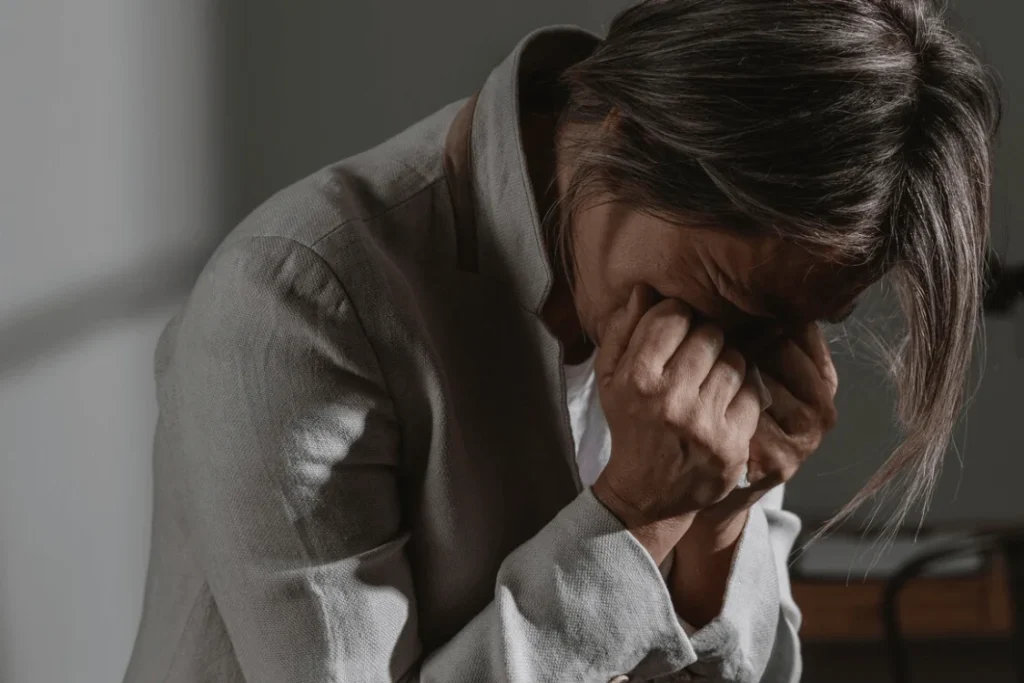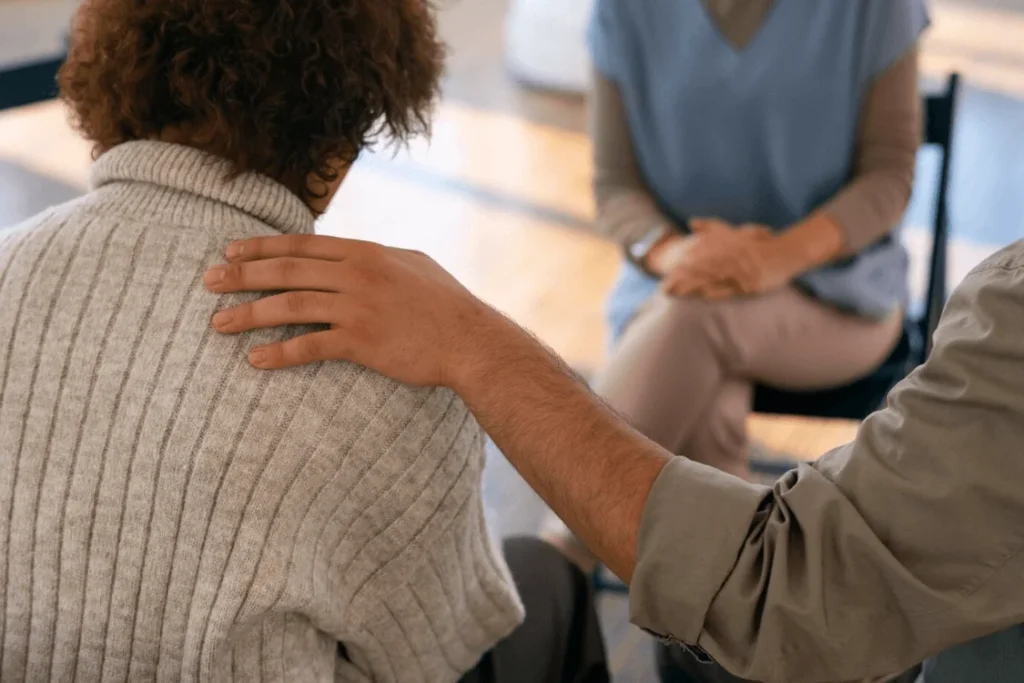
How to Detox From Heroin Use: Withdrawal Symptoms and Detox
Heroin addiction is a serious and life-threatening condition, but recovery is possible. If you or someone you know is struggling with heroin misuse, understanding the detox process is the first step toward breaking free from addiction.
What is Heroin Use?
Heroin is a highly addictive opioid derived from morphine, a natural substance extracted from the seed pods of the opium poppy plant. It typically appears as a white or brownish powder or as a sticky black substance known as black tar heroin. Users commonly inject, snort, or smoke heroin to achieve a euphoric high.
Once heroin enters the body, it rapidly binds to opioid receptors in the brain, creating intense feelings of pleasure and relaxation. However, regular use alters brain chemistry, leading to tolerance, dependence, and, ultimately, addiction. Many people who develop a heroin addiction initially misuse prescription opioids like oxycodone or hydrocodone before turning to heroin as a cheaper, more accessible alternative.
Heroin Detox and Rehab
Detoxing from heroin is a critical first step in recovery, but it can be challenging without professional health services. Heroin withdrawal can be physically and emotionally distressing, making medical supervision essential for a safer and more comfortable detox process.
Rehabilitation goes beyond detox by addressing the psychological, emotional, and behavioral aspects of substance abuse. A structured treatment program provides therapy, counseling, and medication-assisted treatment (MAT) to help patients manage cravings for heroin, develop coping strategies, and reduce the risk of relapse due to physical dependence.
What Is Medical Detox?
Medical detox is a supervised process that helps patients safely withdraw from heroin while managing painful and uncomfortable withdrawal symptoms. Heroin usage alters brain chemistry, leading to physical dependence, and quitting suddenly can result in severe withdrawal effects. Medical detox ensures that withdrawal is managed in a controlled environment, reducing health risks and discomfort.
Healthcare professionals monitor vital signs during medical detox, administer medications when necessary, and provide emotional support. The process typically occurs in a specialized inpatient detox facility or inpatient rehab center, where trained medical staff can respond to any complications.

Medication-Assisted Treatment for Heroin Addiction
Medication-assisted treatment (MAT) is one of the most effective approaches to overcoming heroin addiction. It combines FDA-approved medications with behavioral therapy to reduce withdrawal symptoms, curb cravings, and prevent drug use recurrence.
Common medications used in MAT include:
- Methadone: Helps ease withdrawal symptoms and cravings by acting on the same brain receptors as heroin, but without producing a high.
- Buprenorphine (Suboxone, Subutex): Works similarly to methadone but with a limit on its effects, reducing the risk of misuse.
- Naltrexone (Vivitrol): Blocks the effects of heroin completely, so using the drug no longer produces a high. It does not ease opioid withdrawal but helps prevent relapse once detox is complete.
Can I Quit Heroin Cold Turkey?
Quitting heroin “cold turkey” means stopping all use suddenly without medical support. It is usually not recommended due to the severe withdrawal symptoms and high risk of relapse. Heroin withdrawal is extremely uncomfortable and can last for days, making it very difficult to stay sober without professional help.
Beyond the physical symptoms, quitting cold turkey can be dangerous. Dehydration from vomiting and diarrhea can lead to serious health complications. Additionally, the intense cravings and discomfort often drive people back to heroin use, increasing the risk of overdose.
Can I Detox from Heroin at Home?
Detoxing from heroin at home may seem like an option, but it is not recommended due to the risks involved. At home, you won’t have access to medications that ease withdrawal symptoms or medical professionals who can monitor your health.
Some people try herbal remedies, hydration, or over-the-counter medications to manage withdrawal symptoms at home. However, these methods do not provide the level of support needed for a safe and successful detox.
Are Detoxification Programs Effective?
Yes, detox programs are effective, but they are only the first step in treating substance use. Detox helps remove heroin from your system and manages withdrawal from opiates, but it does not address the underlying causes of drug abuse. Medical detox programs are designed to stabilize you physically and make withdrawal symptoms more manageable.
Many people resume drug use if they do not follow up with addiction treatment, such as counseling, behavioral therapy, and support groups. A full rehabilitation program helps address the emotional, psychological, and behavioral aspects of substance use disorders, giving you the tools to avoid relapse.
What Happens After Opiate Detox?
After initial detox, it’s crucial to continue with structured addiction treatment options to reduce the risk of relapse. Many people are recommended to transition from detox to inpatient rehab, where they receive 24/7 medical and psychological support. If inpatient rehab is not an option, outpatient programs allow you to receive treatment while continuing with daily responsibilities.
Heroin Withdrawal Symptoms
Heroin withdrawal can be one of the most challenging aspects of quitting. When your body has gained a dependence on heroin, suddenly stopping heroin or reducing its use leads to withdrawal symptoms as your system adjusts. These symptoms usually range from mild to severe, depending on how long and how much heroin you’ve used.
What Happens During Withdrawal?
Heroin affects the brain’s opioid receptors, altering how your body perceives pain, stress, and pleasure. Over time, your brain relies on heroin regularly to function normally. When the drug is removed, your body reacts with intense physical and psychological symptoms.
Acute (Short-Term) Heroin Withdrawal Symptoms
Acute withdrawal symptoms typically start within 8-24 hours after the last dose and peak around 48-72 hours. These symptoms of withdrawal may last 5-10 days and include:
- Severe body aches and muscle cramps
- Intense drug cravings
- Insomnia and difficulty sleeping
- Cold sweats and chills (often called “cold turkey”)
- Nausea, vomiting, and diarrhea
- Increased heart rate and blood pressure
- Anxiety, agitation, and restlessness
- Runny nose, watery eyes, and excessive yawning
- Loss of appetite
Protracted (Long-Term) Heroin Withdrawal Symptoms
After the acute phase, some withdrawal symptoms can persist for weeks or even months. This is known as protracted withdrawal or post-acute withdrawal syndrome (PAWS). These symptoms of heroin withdrawal may include:
- Depression and mood swings
- Anxiety and irritability
- Sleep disturbances and chronic fatigue
- Difficulty concentrating and making decisions
- Loss of pleasure in daily activities (anhedonia)
- Ongoing heroin cravings
How Long Does Heroin Withdrawal Last?
The duration of withdrawal from heroin varies from person to person, depending on factors such as the length and intensity of use, overall health, metabolism, and whether other substances were used alongside heroin.
Generally, withdrawal symptoms may begin within 6 to 12 hours after the last dose, starting with anxiety, muscle aches, and drug cravings. Within 24 to 72 hours, withdrawal reaches its peak, with symptoms like nausea, vomiting, sweating, and severe discomfort.
Most physical symptoms start to subside after 5 to 10 days, but psychological symptoms such as depression, anxiety, and drug cravings can persist for weeks or even months.

How Can a Person Get Help for Heroin Dependence?
Overcoming heroin dependence requires professional support, as quitting on your own can be overwhelming and challenging. The first step is recognizing the need for help and reaching out to a healthcare provider, addiction specialist, or rehab center.
Medical detox is often recommended to manage withdrawal symptoms safely, followed by a structured rehabilitation program that includes therapy, counseling, and medication-assisted treatment (MAT). Behavioral therapies such as cognitive-behavioral therapy (CBT) and contingency management help address the psychological aspects of addiction, while support groups like Narcotics Anonymous (NA) offer long-term encouragement and accountability.
Additionally, treatment programs may include dual diagnosis care for patients struggling with co-occurring mental health conditions, as well as holistic approaches like mindfulness and exercise to promote overall well-being.
Heroin Addiction Treatment Near the US
If you or someone you care about is struggling with opioid use disorder, getting professional help can be life-changing. Twilight Recovery Center in Tijuana, just 30 minutes from the San Diego border, offers a private and supportive environment for those looking to regain control of their lives.
Our treatment programs include medical detox, dual diagnosis care, and residential treatment, ensuring the right level of care based on your needs. With a small client-to-staff ratio, you receive focused attention and a structured approach to overcoming addiction. We also offer holistic therapies, including equine therapy, scuba diving therapy, and mindfulness practices, to support overall well-being.
Whether you need inpatient rehab, outpatient support, or specialized therapies, our experienced team of doctors, psychologists, and counselors is here to help. If you’re considering treatment and want to learn more, contact us for a confidential consultation.

